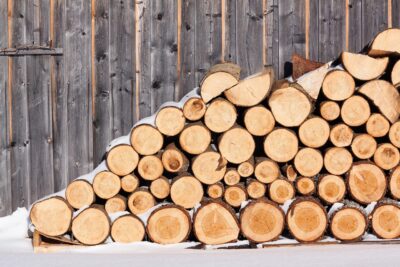Hardwood suppliers in the Southeast region have varied reports on the market at the time of this writing and most of these reports are less than optimistic.
A lumberman in Mississippi said that it is very slow and worse than six months ago because “there’s just no demand for Hardwood lumber.”
His company deals in Poplar, Gum, Beech, Sycamore, Ash and Red and White Oak, which is selling the best. They offer these species in FAS No.1 Common and No. 2A Common.
They sell to flooring and moulding manufacturers, railroads, pallet and industrial markets. He mentioned that the only thing his customers are saying about the market for their own products matches his own report, which is a lack of demand, “the only thing they tell me, is that they just don’t have much demand on their end.”
The source listed a variety of reasons for the negative effects upon the company, “probably the most negative is the labor shortage and all the costs of production, electricity, parts, supplies and insurance. The cost of sawmilling is also very expensive with inflation.”
Overall, he just “hopes things get better.”
A spokesperson in Georgia has a similar outlook on the market and how they are faring compared to six months prior to this interview, stating that they “just shut a mill down in North Carolina, so I’d have to say it’s worse than six months ago.” The closure of their North Carolina mill is not the only cause for this downturn, as he noted that he’s “short of logs, so that’s part of the problem.”
As far as species go, he said that “my FAS Red Oak business is really good and so is my No. 2 Common Red Oak business. My No.1 Common Red Oak business is okay but it’s not selling out. White Oak is incredible.” As for Poplar, “the No.1 and 2 Common Poplar markets have strengthened and come back some but they are still not world beaters; they are just better than they were a couple of months ago and the FAS domestic market stays pretty strong.” In addition to selling Red and White Oak in 4/4 and 5/4 thicknesses, FAS, No. 1, No. 2 and some No. 3 Common and Poplar, they offer Ash as No. 1 and No. 2 Common and in FAS, all of which he was able to sell as he “got it through the grading system” even though he said they “don’t do a whole lot of Ash.” They also saw rows of southern yellow pine and sell pallet material, cants and boards.
They sell to the “full mill deal,” according to the spokesperson, who went on to list their customer base, which includes distribution yards, flooring manufacturers and “some of the bigger cabinet guys,” in addition to some other domestic companies that export their products, as the source’s company doesn’t export directly. He mentioned that based on his customers’ purchasing habits lately, that he “can read between the lines as to whether there’s sales activity going on.”
He pointed to the price of diesel fuel as a major issue for transportation that is affecting “every phase of the business. It affects the loggers getting the timber from the woods to the mill and it affects companies getting the lumber moved all around the yard on forklifts.”
A lumber spokesperson in Kentucky had a more positive review of the market at the time of this writing, saying that “it’s fairly stable. There are just so many things going on in the big scheme of things in our industry right now.” Despite this stability, he noted that his biggest problem is “that we can’t get enough logs in so we’re running at reduced schedules.” He cited the cause for this lack of logs is “an extremely wet spring” followed by “extremely dry temperatures.” Even though there is a shortage of logs for the company, they are doing better than six months ago.
He listed that the “top three species” they are offering are Red and White Oak and Poplar, which are their best sellers. Despite White Oak being a best seller, he explained that it “is in short supply because we’re competing with all of the stave markets and price is no object to them. They’re paying incredible prices for logs that sawmills cannot compete with and so, we’ve seen a 75 percent reduction in our green supply of White Oak logs.” In addition, they sell “the Maples,” Hickory and “small percentages of Cherry and other oddball species. We no longer produce species like Ash and Basswood because those are just non-profitable to cut.” They primarily handle FAS 4/4, No. 1 Common 4/4, No. 2 Common 4/4 and, on occasion, cut some 5/4 in Red Oak and Poplar.
The company’s customer base consists of distribution yards, especially in the export market, end users and secondary manufacturers. As for any commentary his customers might have on the market for their products, he stated that “there’s still a slowdown taking place. The economic conditions are not good globally and the driving force behind that are the high interest rates. Buying equipment at this rate of interest is extremely expensive on companies and users.”
As for factors negatively affecting the business aside from high interest rates, he noted that “the high price of fuel, which is just going to continue to get more expensive unless there’s some federal guidance,” is a big problem because “moving freight anywhere is very expensive and even if a reduction in fuel costs were to happen,” fuel would remain expensive. He cited the price of insurance, the cost of parts and a “critical shortage” of skilled labor in lumber inspector, sawyer and millwright positions because these people must be apprenticed in-house to his list of issues. Considering the labor shortage, his company has been hiring non-violent, work release prisoners from local jails to “stabilize” their workforce and these prisoners, he mentioned, are “actually some of our best workers.”
As for the future, he explained that “what’s on the horizon that’s probably the most ominous cloud for everybody, and it doesn’t matter if companies export or if they don’t, it will afffect every mill, is the new EUDR regulations and the European Union chain of custody for deforestation. The intent of the law that was passed in the EU really was targeting South American countries where there are no safeguards for harvesting timber but those rules apply to the United States, even though it is low risk country at most for illegal harvest or deforestation. They implement on December 31st and it’s extremely complicated but the EU has made very clear that they are not going to change this law.”







